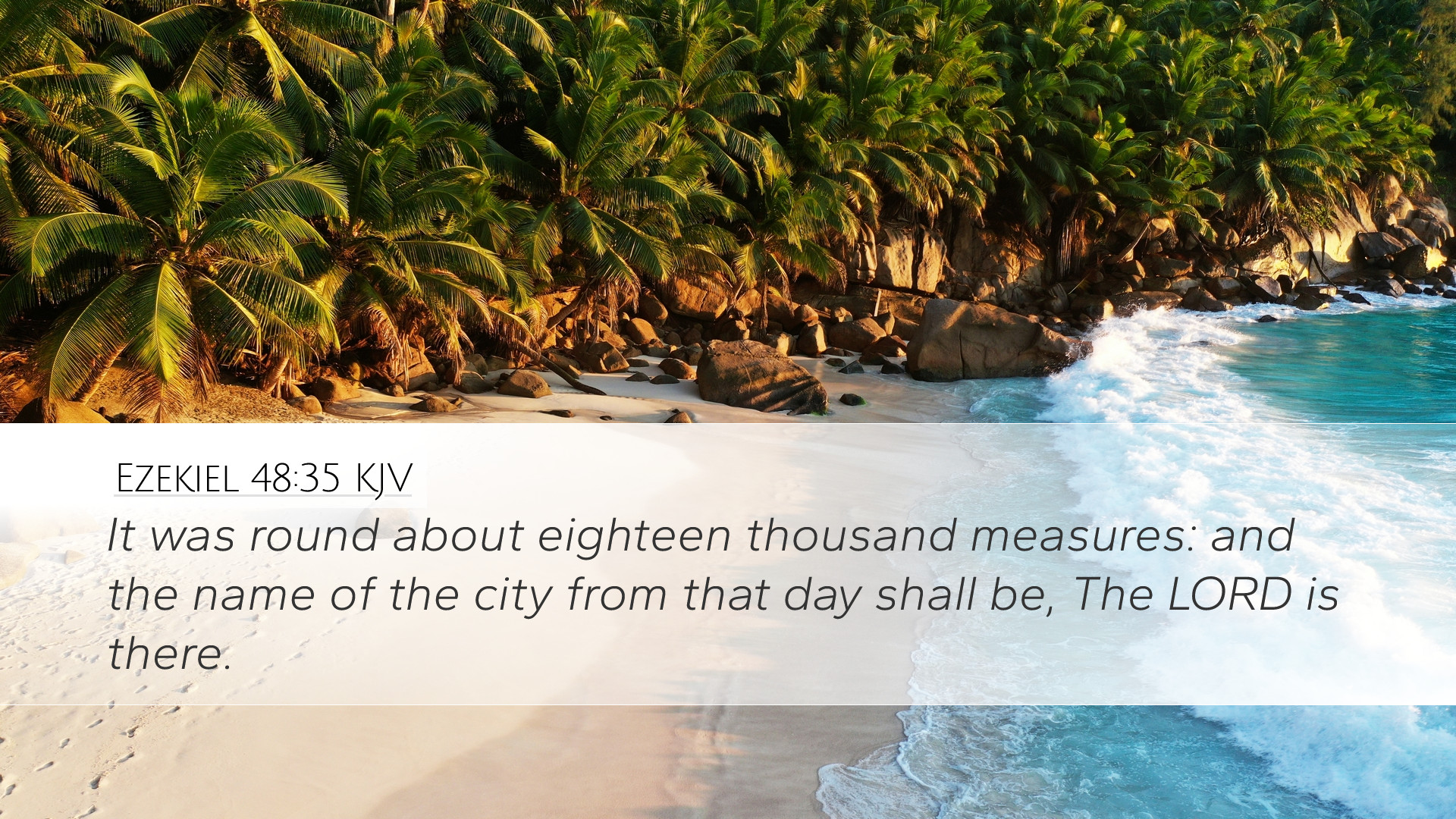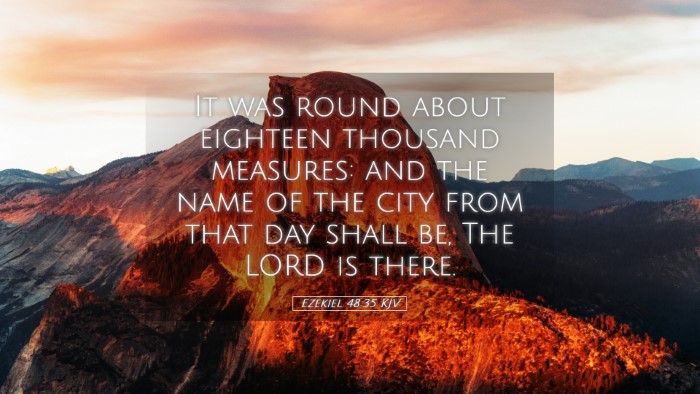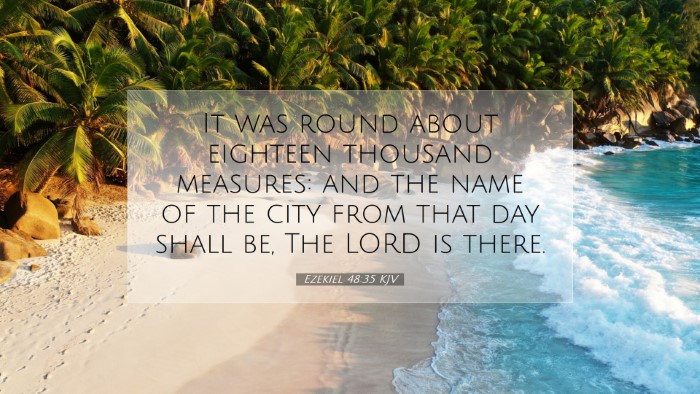Ezekiel 48:35 - A Commentary
Text of the Verse: "The city shall be eighteen thousand measures round about: and the name of the city from that day shall be, The Lord is there."
Introduction
The concluding chapter of Ezekiel presents a captivating vision of restoration and divine presence encapsulated in the last verse. Ezekiel 48:35 conveys not only the dimensions of the new city but also points to the significance of God’s presence among His people. This commentary combines insights from notable public domain scholars to explore the depth of this verse.
Historical Context
The context of Ezekiel's prophecy lies in a time of exile and dislocation for the people of Israel. After experiencing profound loss, including the destruction of Jerusalem and the Temple, the vision of a new city instills hope. Scholars note that Ezekiel speaks to a future restoration—both physically in terms of land and spiritually in re-establishing a covenant community with God at its center.
Divine Dimensions
Measuring the City: The "eighteen thousand measures" signifies completeness and perfection. Albert Barnes notes that numbers in biblical texts often carry symbolic weight. The measurement indicates not merely the physical boundaries of the city but also emphasizes the scope of God's provision and protection for His people.
- Matthew Henry: He emphasizes that the dimensions are significant and points towards the comprehensive nature of God's kingdom.
- Adam Clarke: His commentary suggests that such dimensions reflect the ample space that God provides for His people to gather and worship.
The Name of the City
The defining moment in this verse is the renaming of the city: "The Lord is there." This name embodies the essence of God's promise to His people, highlighting the deep relationship between the location and divine presence.
- Theological Implications: The name serves as a powerful reminder of God's continual presence. It assures believers that despite their circumstances, God is with them.
- Spiritual Significance: The assurance that "The Lord is there" goes beyond physical location; it transcends time and encourages a relationship anchored in faith.
Presence of God Among His People
The notion of God’s presence is pivotal in biblical theology. The city of God being named after Him emphasizes the fulfillment of His covenant. Adam Clarke states that this marks the culmination of God's redemptive plan—a point at which God dwells unmistakably among His people once more.
- Historical Significance: Reflecting on Israel’s history, this is a return to the ideals first established in the Garden of Eden and later exemplified in the Tabernacle and the Temple.
- Future Hope: Furthermore, this verse foreshadows the ultimate hope of the New Jerusalem described in Revelation, affirming the eternal presence of God among His people.
Practical Applications for Today’s Believers
This verse holds profound meaning for modern Christians, pastors, and theologians as it emphasizes themes of hope, presence, and divine assurance.
- Hope in Restoration: Just as Ezekiel presented a vision of renewal, believers today can cling to the promise of God’s restorative work in their lives.
- Importance of Worship: Recognizing the presence of God invites a call to worship and community, emphasizing the necessity of gathering together in faith.
- Personal Relationship with God: As believers, it’s essential to cultivate a personal relationship with the Lord, understanding that He desires to be present in every aspect of life.
Conclusion
Ezekiel 48:35 serves as a profound reminder of God's eternal commitment to His people and His desire to dwell among them. The dimensions of the city represent His abundant provision, while the name signifies His unwavering presence. For scholars and believers alike, this verse invites us to reflect on the goodness of God and the hope we have in Him, both in the present and the future.


